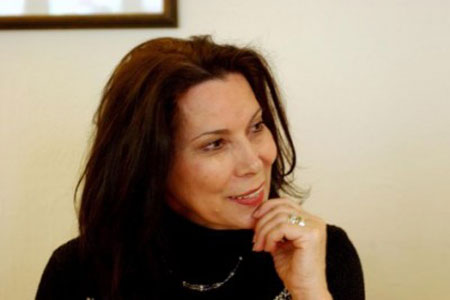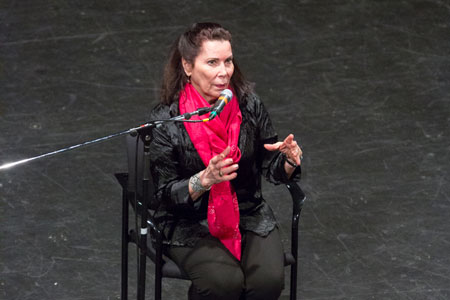Liebrecht shares writing process with students
Award-winning playwright and author Savyon Liebrecht described her personal creative writing process to an audience of Emerson students at the Greene Theater on April 1.
“There are no right or wrong ways of writing. You have to find your own way and your own voice,” she said. “It takes a long time to understand the pattern of writing. I think it took me 20 years to be able to say what I’m going to say today.”

Savyon Liebrecht, an author and playwright whose plays have premiered at Israeli Stage in Boston, spoke with Emerson students about the creative writing process on April 1. (Photo Courtesy of IsraeliStage.com.)
In her lecture, The Creative Process, Liebrecht covered the difference of storytelling through short stories, novels, and plays. She has published six collections of short stories and two novels. Her plays have premiered at the Israeli Stage in Boston.
As a writer from Israel and daughter of two Holocaust survivors, Liebrecht’s stories have explored the tension between Israelis and Palestinians, as well as the effect of the Holocaust on descendants of survivors.
When she first sits down to write, she says it always starts with a character.
“When the character first appears, it is a complete stranger and we start getting to know each other,” she said. “This character would always approach me in a moment of distress. We set out together to resolve this problem. I never know what’s going to happen on the next page.”

Savyon Liebrecht at the Greene Theater on April 1. (Photo by Alena Kuzub)
Once she has the character in mind and starts writing the story, she compares the process to the effects of a dream.
“We do not always want to dream what we dream about,” she said. “We definitely do not embroider the story. As we go along, it is revealed; it is exposed.”
She said that writing a novel is like writing a short story except with more structure and less spontaneity. For plays, she depends entirely on structure.
“A play is more technical,” she said. “I never start writing dialogue before I have the whole structure in front of me—before I know how it starts, develops, and ends.”
She explained that if she doesn’t have the structure in place, then she could go on writing the play forever.
Through her personal creative process, she has been able to find her own voice and encourage students to find their own by following their instincts.
“Let the story flow even if you think it is absurd,” she said. “When the time comes to edit it, you can throw things away. Let it happen…the subconscious is much wiser than the conscious part.”
Liebrecht’s lecture was sponsored by the Israeli Stage, Combined Jewish Philanthropies, StandWithUs, and Emerson College.
Categories